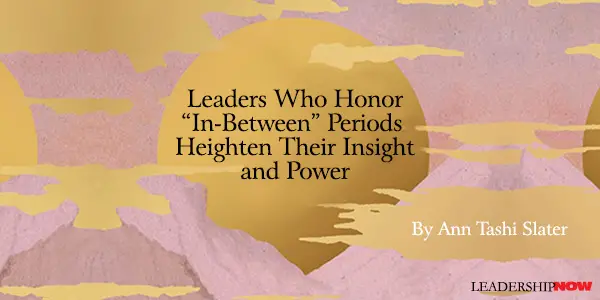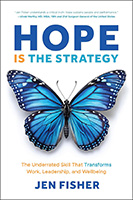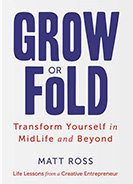 |
 |
01.20.26

Tread Carefully When Using Aggression to Achieve Your Goal
AGGRESSION carries a negative connotation. It’s often described as an attribute of anger and a lead-in to violent behavior. But aggression can also be equated with the tenacity with which someone goes after their goals. In this sense, it describes somebody who pursues their goal with great passion, enthusiasm, or intensity. An example may be a young executive, in the process of trying to impress her bosses, who utilizes unconventional tactics to increase her clientele. Her increased status leads clients of one of her coworkers to transfer to her accounts. While her goal had been to increase her sales, she had no intention of hurting her colleague. But nonetheless her coworker clearly was, even though hurting someone wasn’t the goal. Such tactics are often the case with people who become successful. Aggression has been shown repeatedly as paving the way for success. Aggression is the tenacity with which someone goes after their goals. Aggressiveness, which is the adverb describing behavior, captures this best. While there have been misunderstandings when we describe someone as aggressive, people mistakenly think that it means that they're violent. In fact, there are two main types of aggression: instrumental aggression and reactive aggression. Instrumental aggression is when somebody is pursuing their goal with great passion, enthusiasm or intensity, in order to increase the likelihood of achieving that goal. A secondary consequence of that behavior may be to harm someone, but it is not the goal. For example, a basketball player is heading to the hoop in order to score. In the process of driving the lane, they accidentally elbow an opponent in the face. There is no denying that the other player got hurt, but that was not the goal. The goal was to put the ball in the hoop. Just as the young executive whose tactics ended up stealing her coworker’s clients, people who rely on instrumental aggression can hurt others even though it wasn’t their intention. Compare this to the second form of aggression — reactive aggression. It describes behavior that has as its primary and sometimes solitary goal to do harm to someone. Reactive aggression is related to anger and often is the behavior that leads people to get into trouble. It usually appears in response to a perceived injustice, insult, or wrongdoing. A sports example of reactive aggression would be an offensive lineman trash talking a defensive lineman about his mother, saying obscene things. Furious, the defensive lineman gets up and smacks the offensive lineman in the helmet, incurring a 15-yard penalty and being ejected from the game. Note, this was in reaction to a provocation — that’s why it’s called reactive aggression. So, instrumental aggression paves the way for success, while reactive aggression paves the way for trouble. Why? People, especially men, are very sensitive to issues of power. If you can provoke somebody to fight, you control them. If you’re someone who wears your emotional buttons on your sleeve, you can be easily provoked and will often engage in reactive aggression. You’re also someone who gives your power away all the time. Think about it like this: real power is like being Teflon: nothing sticks to you and nothing breaks you. Let nearly everything roll off. Allow the things that stick to be worth it — which means: don't waste energy or emotion being easily provoked. It's just not worth it and can be really costly emotionally or materially. In short, aggression can work for you or against you. If you tenaciously go after your goals, as in engaging in instrumental aggression, you are likely to achieve success. The only caveat is you need to be aware of the price you may pay for quashing others along the way. On the other hand, if you have a hard time keeping your reactive aggression in check, you’re unlikely to get ahead. You’ll need to get better at seeing what and who matters, and what and who you have the delicious privilege of completely ignoring.  
Posted by Michael McKinney at 02:31 PM
01.16.26

Leaders Who Honor “In-Between” Periods Heighten Their Insight and Power
LEADERS are under tremendous pressure to stay ahead of the curve while increasing output and notching wins. The tendency is to rush from project to project, overcome hurdle after hurdle, and never stop for a breath. But truly successful leadership requires taking time for reflection between one project and the next. Rather than diminishing leaders’ effectiveness, pausing in between heightens their insight and power. In Tibetan Buddhism, in-between periods are known as “bardos.” In these intervals, the teachings tell us, “the intellect becometh ninefold more lucid.” Bardos offer us a rich opportunity to step outside our usual ways of seeing and discover fresh perspectives. Our busy-ness can make us feel we’re on track, when the reality is that we’re drifting like a boat that’s steadily and unnoticeably veering off course. Striving to meet today’s glorified standards of productivity, we think we’re taking care of what matters most when, in fact, we’re putting it off. Tomorrow you’ll analyze what went wrong and what went right with the latest project. Next week you’ll acknowledge your team’s efforts. Later in the month you’ll take time to better understand how the processes you’re overseeing work. Next year you’ll strategize for succession planning. Now, as the new year gets underway, make a commitment to honor intermediary periods. Resolve to set aside time between projects for conscious attention to your relationships, your principles, and your purpose. By turning your attention to this kind of reflection on a regular basis, you can reset your compass, course correct and enhance your leadership skills. Here are some questions to ask yourself when you take a pause: 1. Is there something I keep doing even though it isn’t working? According to the Buddhist law of karma, or cause and effect, every result has an origin. “Karma” means “act,” and it’s about how we determine what happens with our actions. Karma as action (rather than fate) is a concept with huge power. What’s occurring today is a consequence of your actions last year, last week, yesterday, and this morning. All of that, plus what you do now, will lead to results in the future. If you don’t want what usually happens to happen, do something different. In other words, stop doing things that aren’t working. You might start by identifying a behavior that isn’t getting the results you want. Perhaps you have too many meetings to prepare for other meetings. Or you micromanage instead of setting standards. Or you request reports and metrics that no one acts on. Once you pinpoint the action, you can change it. 2. Am I living in alignment with my values? Often, we behave in ways that aren’t aligned with our values. You care about developing talent but don’t devote time to mentoring. You believe in open discussion but quash dissent in meetings. You advocate work-life balance but expect employees to be available at night and on weekends. Recognizing these points of disjunction allows you to transform behavior patterns you weren’t aware of. As your values and behavior come into alignment, you experience increased personal and professional satisfaction. 3. If I only have one more year in this role, what do I want to prioritize? Impermanence is the central concept of the bardo teachings. However immortal we may feel, we — and everything and everyone we know — will end. What’s more, this can happen at any moment. Bardo in-between periods give us the opportunity to reflect on impermanence. This may feel dark and unnecessary (why spend the time that you’re engaged in your work thinking about it coming to an end?), but it helps us make the most of our days as we see that sooner or later things will change. Best-selling author Gish Jen became acutely aware of death when she attended a funeral for the first time. She realized, “‘Oh, my god! We’re all going to die!’” The consciousness of her own mortality that struck Jen at the funeral has never left her. She says, “For every book, I ask myself, ‘If it’s only [possible] to write one more book, would this be it?’” Ask yourself: If I only have one more year to… If there’s only one more chance to… By honoring in-between periods, we undergo a profound shift in our experience of leadership and indeed, of life. Instead of feeling like we’re rushing from hour to hour, day to day — our attention fractured as we try in vain to catch up with all that we want to do and must do — we become more centered and effective. We grow confident in the knowledge that we’re doing today, not later, what’s most important and aligned for us.  
Posted by Michael McKinney at 01:18 PM
01.15.26

Leading Thoughts for January 15, 2026
IDEAS shared have the power to expand perspectives, change thinking, and move lives. Here are two ideas for the curious mind to engage with: Ryan Holiday on social intelligence: “Our curiosity, our desire for understanding should extend not just to the person in front of us but to how people function within groups. Both because it is an endlessly fascinating topic and because it’s essential to getting things done.” Source: Wisdom Takes Work: Learn. Apply. Repeat. Michael J. Fanuele on inspiring others: “Passion and Reason work against each other. Passion is the energy that wants you jumping out of your seat. Reason wants you to sit and think for a little longer. Adding one decreases the other. Source: Stop Making Sense: The Art of Inspiring Anybody Look for these ideas every Thursday on the Leading Blog. Find more ideas on the LeadingThoughts index.
Posted by Michael McKinney at 02:07 PM
01.08.26

Leading Thoughts for January 8, 2026
IDEAS shared have the power to expand perspectives, change thinking, and move lives. Here are two ideas for the curious mind to engage with: Performance Coach Julie Gurner on caring deeply: “You have to care deeply to be able to challenge directly, and … somebody has to know that you care deeply about who they are in their role, that you care about their performance, that this is coming from a place that’s meant to make them better. And if it’s not coming from that place, and it’s coming from a place of punishing or shaming or humiliating or dominating, it’s not a really effective thing to do. But people can take hard feedback from people that they know are in their corner.” Source: The Knowledge Project Podcast: Caring Deeply, Challenging Directly Heidi Priebe on loving someone as they change: “To love someone long-term is to attend a thousand funerals of the people they used to be. The people are too exhausted to be any longer. The people they don’t recognize inside themselves anymore. The people they grew out of, the people they never ended up growing into. Source: This Is Me Letting You Go Look for these ideas every Thursday on the Leading Blog. Find more ideas on the LeadingThoughts index.
Posted by Michael McKinney at 03:40 PM
01.01.26

First Look: Leadership Books for January 2026
HERE'S A LOOK at some of the best leadership books to be released in Janaury 2026 curated just for you. Be sure to check out the other great titles being offered this month.
Setting goals is easy. Following through on them? A whole lot harder. It turns out, the secret to finishing what you start isn’t sheer willpower or the latest productivity hack. It’s becoming more intentional. With Intentional, bestselling author Chris Bailey distills a decade of deep research on productivity to deliver a profound, practical, and counterintuitive road map to getting things done. Forget extensive to-do lists and a never-ending workload. To reach your goals, you must structure your daily actions around what’s most important to you—and let go of the rest. This way, getting things done becomes second nature.
An eye-opening discussion on the transformative impact of AI and how to prepare for a new future. In The Next Renaissance, acclaimed AI advisor Zack Kass presents an optimistic and compelling vision of how artificial intelligence will shape our lives. Drawing on historical context, cutting-edge advancements, and firsthand experience, Kass lays out how AI will become a collaborative partner in building a better, more creative, and more compassionate world. Just as the original Renaissance revolutionized art, science, and society, today’s AI-driven Renaissance will redefine how we create, innovate, and flourish. Kass leverages his deep industry expertise to explain how this transformative technology will solve previously unimaginable challenges, presenting entirely new possibilities.
Rewire your organization—and your leadership—for a world driven by projects. It's time to stop treating projects as side work. In the age of constant transformation, projects are the primary way organizations create value and accelerate innovation. In this new paradigm—the project economy—traditional agile approaches are no longer enough. The next evolution is the project-driven organization, where projects sit at the center of how companies are structured, led, and rewarded. Powered by Projects explores this bold new model. Antonio Nieto-Rodriguez, the worldwide expert on project-based work, reveals the leadership styles and organizational structures necessary to drive success today.
Great ideas are all around us, waiting to be discovered. Here’s how to find them. We’re used to imagining creativity as a lightbulb moment—sudden, mysterious, reserved for the gifted few. But what if ideas aren’t conjured from thin air? What if they’re discovered—more like precious artifacts that we unearth and refine? In How Great Ideas Happen, cognitive scientist George Newman draws on cutting-edge research to show that creativity isn’t magic, it’s method. The most successful innovators don’t wait to be struck by brilliance; their creative process is more like archeology. As keen-eyed explorers, they scan the terrain, dig with intention, and, with a little luck, find gold.
Whether you are practicing guitar, pushing your limits at the gym, leading a team, honing a craft, studying medicine, or giving yourself the time and space to finally write that book, the pursuit of excellence is a big part of what makes life worth living—and it is for all of us. Unlike "pseudo-excellence," which is about hustle culture and hacks, genuine excellence is about challenging yourself in worthwhile endeavors, focusing on what matters most, and expressing the unique qualities that make you who you are. Too often, we get caught up in convenience and distraction to the detriment of our true potential. The good news is that we can set ourselves on a better path, one that includes more aliveness and resonance, more connection to self and others. Here, Stulberg finds convergence between modern science, age-old philosophy, and daily practice to explain that we are wired to strive for excellence—it is what we are here to do, core to our humanity. Yet our environment often works against us.
   
“I read books because, at their best, they make me better, more empathetic, more socially aware, more in tune to the stranger beside me. They help me imagine a better future, provide me with answers to my insatiable questions, take me to places I’ll never get to go. ” — Annie B. Jones
Posted by Michael McKinney at 05:01 PM

Leading Thoughts for January 1, 2026
IDEAS shared have the power to expand perspectives, change thinking, and move lives. Here are two ideas for the curious mind to engage with: Psychologist Shane Lopez on hope: “Hope keeps us in the game. With low hope, we stop interacting with the world. We pull back. Literally, we don’t show up. We just move through in a zombie-like state. We all go through periods of sustained low hope, and they don’t lead to anything good at all. But hope for the future—maybe even the distant future—is what keeps people focused and moving in a direction that makes sense for their welfare and the welfare of the organization.” Source: Decade of Change: Managing in Times of Uncertainty Robert Quinn on externally and internally driven people: “People in the reactive mode tend to make emotions the centerpiece of their lives. Emotions become the measurement system for assessing the immediate situation. People are then forever fleeing from or searching for the ‘right’ situation, the one that will make them happy. Internally driven people have a different perspective. They know that their emotional states keep changing. They pursue their intended result no matter what their temporary emotion might be.” Source: Change the World: How Ordinary People Can Achieve Extraordinary Results Look for these ideas every Thursday on the Leading Blog. Find more ideas on the LeadingThoughts index.
Posted by Michael McKinney at 12:55 PM
12.31.25

LeadershipNow 140: December 2025 Compilation
See more on
Posted by Michael McKinney at 09:04 AM
12.25.25

Leading Thoughts for December 25, 2025
IDEAS shared have the power to expand perspectives, change thinking, and move lives. Here are two ideas for the curious mind to engage with: Nicole Vignola on learning: “The first major underpinning of a growth mindset is that people with this mindset understand that learning is a valuable opportunity in the face of adversity. When people believe that they can improve and grow from failure and setbacks, they are more likely to engage in challenging tasks and persist through difficulty. When people know and understand that the brain is malleable and are willing to adapt to circumstance, they are likely to persist in the face of obstacles. This perseverance can enhance pathways in the brain that are associated with learning, which strengthens the notion that learning is a dynamic process that’s forever evolving.” Source: Rewire: Break the Cycle, Alter Your Thoughts and Create Lasting Change
David McCullough on learning from others: “Be generous. Give of yourselves. Count kindness as all-important in life. Take interest in those around you. Try to keep in mind that everyone you encounter along the way, no matter their background or station in life, knows something you don’t. Get in the habit of asking people about themselves, their lives, their interests, and listen to them. It’s amazing what you can learn by listening.” Source: History Matters Look for these ideas every Thursday on the Leading Blog. Find more ideas on the LeadingThoughts index.
Posted by Michael McKinney at 01:28 PM
|
BUILD YOUR KNOWLEDGE
 

How to Do Your Start-Up Right STRAIGHT TALK FOR START-UPS 
Grow Your Leadership Skills NEW AND UPCOMING LEADERSHIP BOOKS 
Leadership Minute BITE-SIZE CONCEPTS YOU CAN CHEW ON 
Classic Leadership Books BOOKS TO READ BEFORE YOU LEAD |